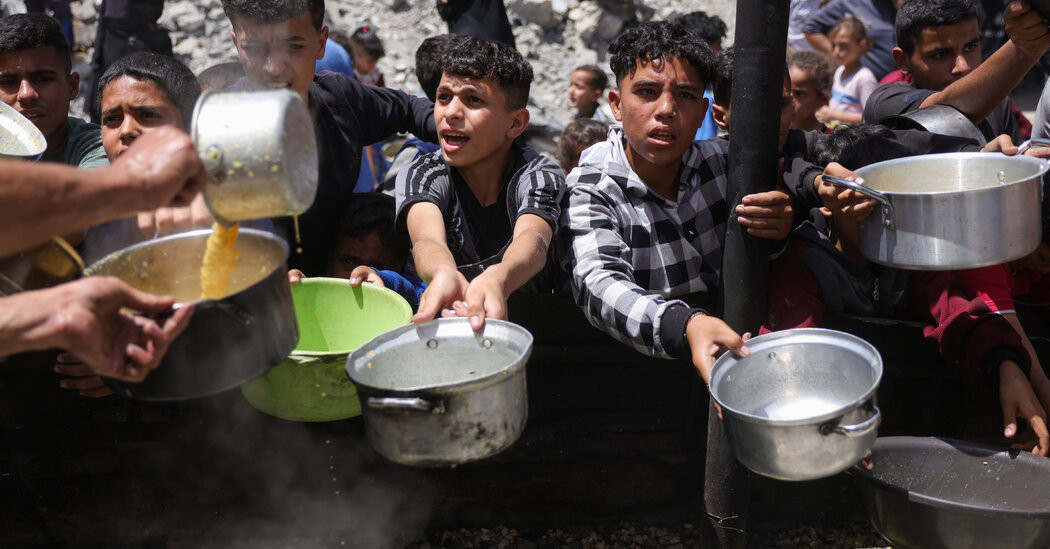

For many, the hope of food arriving has become like the endless reports of an imminent cease-fire: constantly trumpeted as just around the corner yet still out of reach.
Three days after Israel announced that it would ease its blockade of humanitarian aid to Gaza, it appeared on Wednesday that little, if any, of the desperately needed food, fuel and medicine had actually reached hungry Palestinians.
Dozens of trucks ferrying supplies have crossed into Gaza at the Israeli-controlled border crossing of Kerem Shalom, according to Israel. But the United Nations has so far been unable to move any trucks from Kerem Shalom to warehouses inside Gaza, in part because of fears of looting, according to a U.N. official, who requested anonymity to share sensitive details.
Palestinians reeling from Israel’s two-month ban on food, fuel and other supplies have been left waiting. The delays suggested that distributing aid across Gaza was likely to take time, even as Israel threatens a major ground offensive that could upend the process.
“Today we will mostly eat lentils, or pasta,” Riyadh al-Housari, a 25-year-old in Gaza City, said in a phone interview. “We eat one meal in the late afternoon. It is one meal and there is no other.”
Israel’s blockade has rendered the situation so dire that Gazans are at “critical risk of famine,” a panel of U.N.-backed experts said in May. They projected that tens of thousands of children could suffer from acute malnutrition if the restrictions continued. Israel argued the report was based on faulty data and assumptions.
In early March, Israel announced it was barring humanitarian aid from entering Gaza. Israeli officials argued that the restrictions aimed to pressure Hamas to agree terms for ending the war and freeing the remaining hostages held in Gaza.